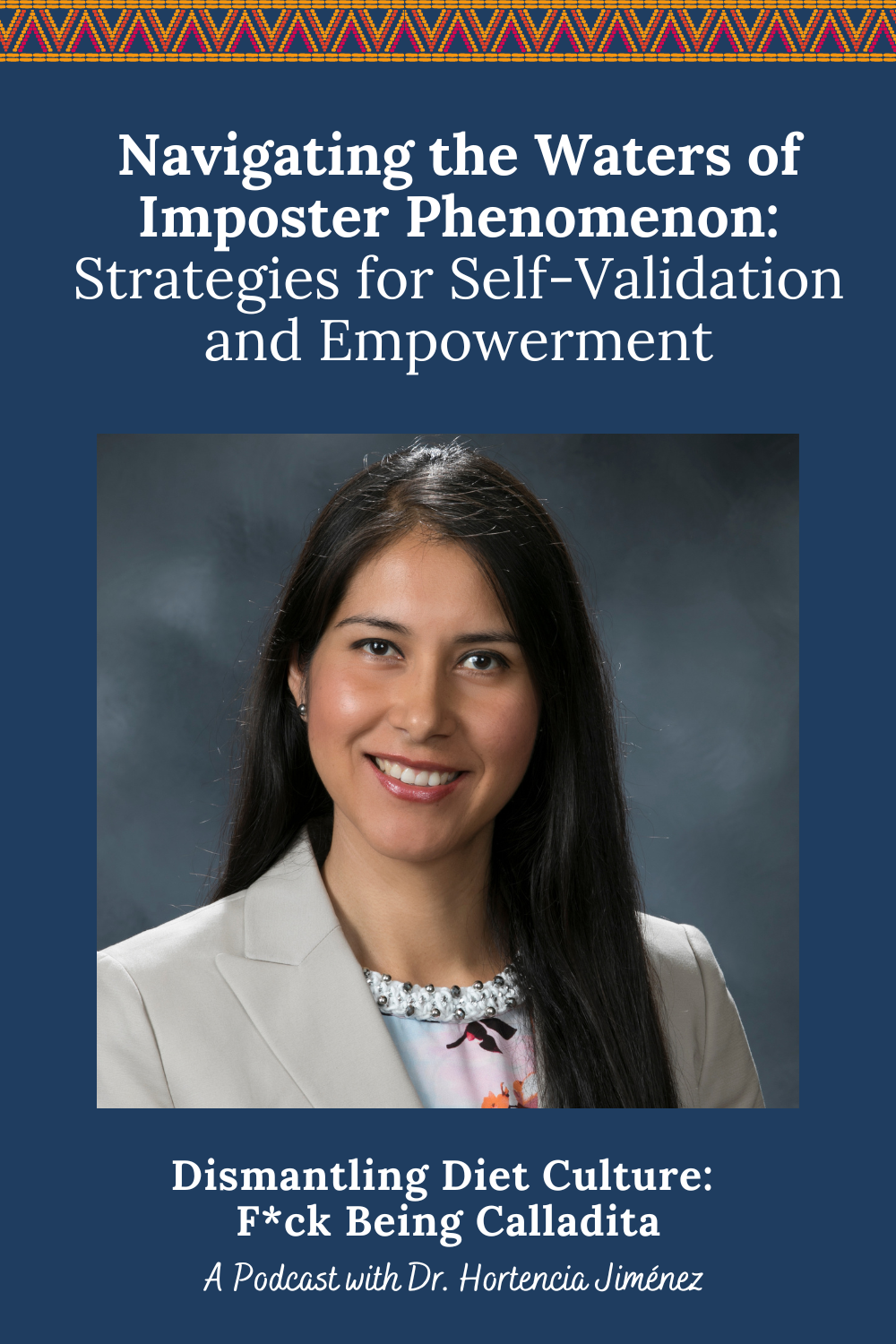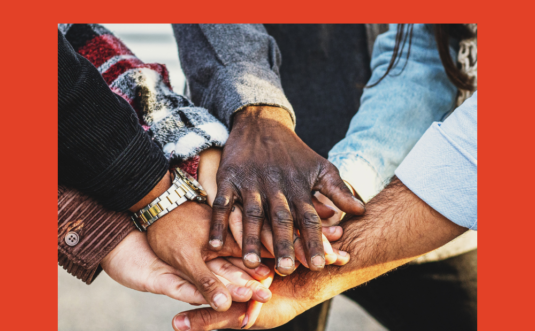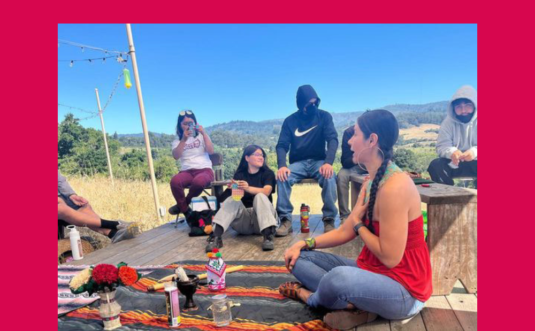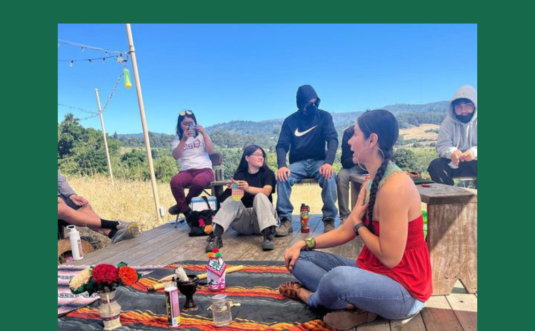Overcoming Self-Doubt and Embracing Your Inner Strength
Hello, everyone! I’m Dr. Hortencia Jimenez, and welcome to the 76th episode of the “Dismantling Diet Culture: Fuck Being Calladita” podcast. In this episode, we dive deep into a topic that has resonated profoundly with my students and listeners alike—the imposter phenomenon. Today, I’d like to expand on the episode’s content in this comprehensive blog post, providing insights, strategies, and much-needed encouragement to those grappling with feelings of inadequacy.
The Genesis of the Imposter Phenomenon
The imposter phenomenon, often referred to as imposter syndrome, is the pervasive feeling of self-doubt and inadequacy, particularly among high-achieving individuals. It’s that inner voice that tells you that you don’t belong, that you’re a fraud, and that sooner or later, everyone will discover your perceived incompetence. This feeling isn’t intrinsic; rather, it’s a result of societal conditioning, compounded by various institutions and systems of oppression.
Recognizing the Imposter Phenomenon
As a sociologist and a health coach, I advocate for acknowledging and reframing the language around this phenomenon. Rather than labeling it as a “syndrome,” which implies a medical or psychological deficiency, we call it a “phenomenon” to underscore that it is a widespread experience influenced by external factors, not an inherent flaw.
Familial and Societal Influences
Our journey of self-doubt often begins within the family unit. Traditional gender roles, expectations, and the absence of affirmations can sow the seeds of feeling “not good enough.” Culturally, especially within BIPOC communities, these feelings are exacerbated by systemic barriers and lack of representation.
Reflect on the messages you absorbed growing up. Were you encouraged to pursue your dreams, or were you limited by stereotypes and expectations? Understanding these roots is crucial for healing and breaking the cycle of self-doubt for future generations.
The Role of Education and Academia
Educational institutions play a significant role in shaping our self-perception. Negative experiences with counselors, and teachers, or a lack of representation can perpetuate feelings of inadequacy. I hear countless stories from students disheartened by discouraging words from authority figures. Remember, it’s often their limited perspective, not your capabilities, that informs such advice.
Challenging the Toxic Narratives
To combat the imposter phenomenon, it is essential to identify and dismantle the toxic narratives you’ve internalized. Start by recognizing and challenging negative self-talk. Replace statements like “I’m not smart enough” with affirmations based on your true strengths and accomplishments.
Next, gather evidence of your achievements. List out your successes, both big and small, and acknowledge your journey. This practice can significantly boost your self-esteem and act as a solid defense against feelings of inadequacy.
Building a Supportive Community
Surround yourself with like-minded individuals who uplift and inspire you. Community is critical, especially for those of us navigating spaces where we are the minority. Engage with people who encourage your growth and set boundaries with those who do not.
Remember, our ancestors thrived in communities, and so can we. Foster and nurture these relationships, as they are intrinsic to our well-being and success.
The Influence of Media and Political Discourse
Media representation and political rhetoric significantly impact our self-worth and sense of belonging. Be mindful of the media you consume. Detox your social media feeds and follow accounts that inspire and empower you. Choose to engage with content that reflects your values and strengthens your self-image.
Political discourse, too, can marginalize and disenfranchise. Recognize its influence but do not let it define your worth. Engage in self-affirming practices and support policies and leaders who champion inclusivity and equity.
Embracing Spirituality and Reclaiming Identity
Lastly, explore your spirituality as a source of strength. Whether through religious practices or connecting with your cultural and ancestral roots, spirituality can provide immense support in overcoming self-doubt. My journey from Catholicism to embracing my indigeneity has been transformative, offering resilience and a profound sense of identity.
Rewriting Your Narrative
The imposter phenomenon is not a reflection of your abilities but rather a manifestation of external conditioning. By recognizing its origins, challenging negative narratives, and surrounding yourself with supportive communities, you can dismantle these feelings of inadequacy. Remember, your journey of self-validation and liberation begins with you. You are smart, capable, and deserving of all your achievements. Keep pushing forward, embrace your strength, and continue to take up space unapologetically.
Thank you for joining me in this exploration. Until next time, let’s continue to dismantle diet culture and all forms of systemic oppression, one step at a time.




